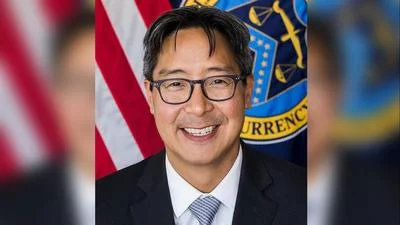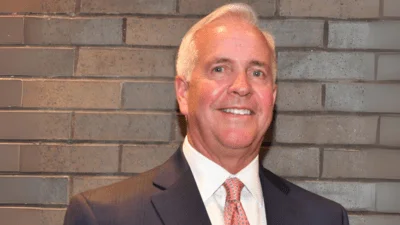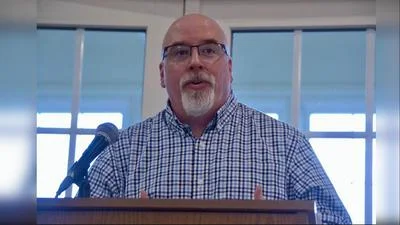Rick Laib | Contributed photo
Rick Laib | Contributed photo
Republican Congressional candidate Rick Laib has come to view Gov. J.B. Pritzker’s persistent push for a progressive tax system in the simplest of terms.
“I imagine the governor continues to push the fair tax because it will give him control,” Laib told the Will County Gazette. “No one believes there are enough rich people in Illinois who, when taxed, will sufficiently pay the bills of the state. A fair tax will give the governor and lawmakers more control over what Illinoisians pay. In some cases taking more will make residents more reliant on the state – which I think is attractive to some lawmakers.”
With veteran state Sen. Terry Link (D-Indian Creek) recently becoming the fourth Democrat lawmaker who’s strongly backed the tax to now find himself facing criminal charges, Laib wonders what other factors could be at work.
“It is not persuasive to me that a fair tax will accomplish what is being promised,” added Laib, who is running against U.S. Rep. Bill Foster in the 11th District. “Passing a fair tax will allow state lawmakers to tax those in higher income brackets. It will not only allow it, but we can expect it as proponents have promised this. Unfortunately, those in higher income tax brackets are also the same individuals who are most likely in the position to leave.”
Facing tax evasion charges, Link joins former state Rep. Luis Arroyo, who faces up to 10 years in prison, and state Sen. Tom Cullerton, who has been hit with a 41-count indictment on embezzlement charges. One-time state Sen. Martin Sandoval has already pleaded guilty to taking $250,000 in bribes from SafeSpeed, a red-light camera vendor.
And then there is longtime House Speaker Mike Madigan, who now finds himself implicated in an ongoing federal corruption probe involving ComEd in which it’s alleged bribes were steered to several of his close associates as part of a pay-to-play scheme aimed at currying favor with him.
Laib argues it all comes down to greed and more greed.
“The state does not need new taxes to pay for the bills it has incurred,” he said. “We can pay our bills by cutting expenses and generate additional state revenue by lowering taxes.”






 Alerts Sign-up
Alerts Sign-up